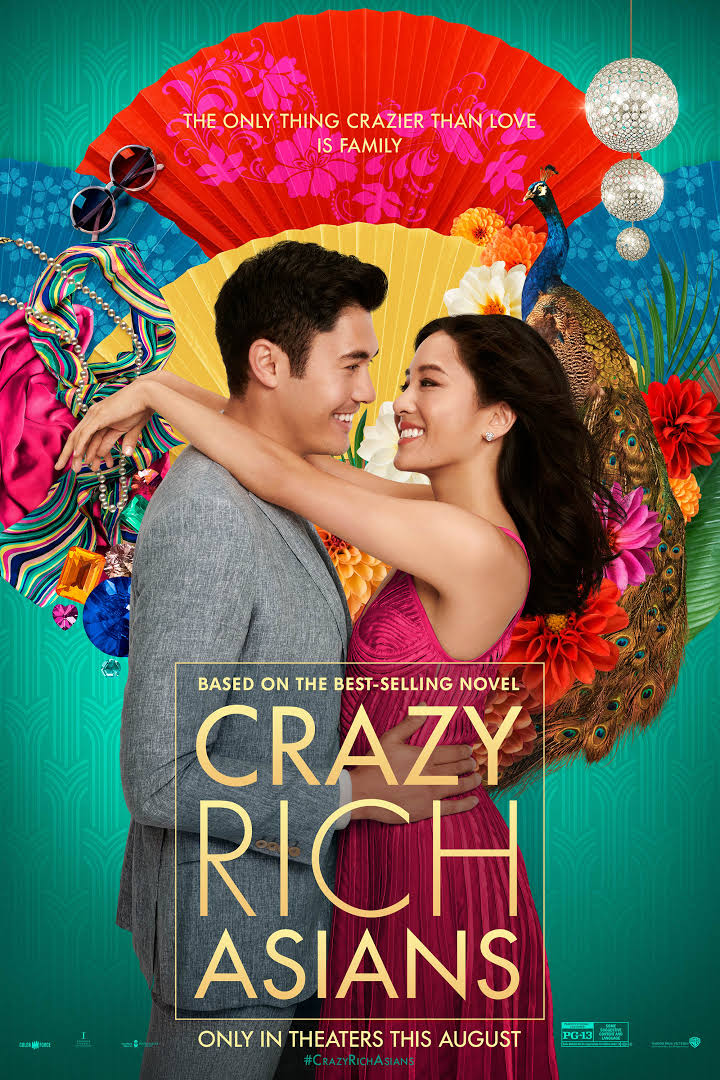This film is your stock standard poor-girl-meets-rich-boy romcom, with a subtext of Chinese cultural and economic resurgence which makes it interesting.
Crazy Rich Asians generated a huge amount of buzz on its release because apart from 1960’s ‘The World of Suzie Wong’ it was the first major Hollywood film in which all the main characters are Asian. It opens with a quote from Napoleon Bonaparte, of all people: ‘Let China sleep, for when she wakes she will rule the world.’ Huh? What’s that doing in a love story?
Well, the story starts in England then moves to America, but there are no significant Anglo characters. Except for the racist hotel owner who, in the opening scene set in 1995, gives a Chinese woman the runaround when she tries to check in to a posh London hotel. Of course it turns out that her family are about to add this hotel to their growing portfolio of international real estate. I found the scenario a bit implausible – since when have the Poms turned down rich foreigners and their money? Certainly not in the late twentieth century!
Twenty-something years later the woman’s son, Nick, has met the beautiful Rachel at their New York college. They’ve been dating for a year and it’s time she met his uber-rich clan at a family wedding in Singapore.
Rachel doesn’t know quite how rich Nick is, but she soon gets an inkling when to her surprise and delight they are welcomed into a lavish first class cabin on the plane. So far so conventional. A wish-fulfilment fantasy for poor girls a la Pretty Woman, except our modern heroine is not a call girl but an economics professor.
But as in all such stories there must be some obstacle for the plucky heroine to overcome. Here it’s a very Chinese one: family and tradition. Rachel is just ‘too American’ for Nick’s haughty mother and, despite a respectful demeanour towards the elderly which even Confucius couldn’t fault, his grandmother.
There’s more than a whiff of Chinese triumphalism here, exemplified in one of the sharper lines: Rachel goes to visit a college friend now back with her family in Singapore. They live in a lavish mansion so tasteless it would put Rose Hancock to shame. Says the dad to the younger kids: ‘Eat up. Don’t you know there are children starving in America?’
Then there’s the bucks’ party: the groomsman has laid on a massive knees-up complete with dozens of bikini girls clad as beauty queens from European countries, as if these places are just the latest in China’s cultural conquests. The girls are just visual wallpaper.
Crazy Rich Asians is unashamed in its celebration of conspicuous consumption, despite the wholesome message at the end that Love trumps Money. Western-style environmental sensibilities are ignored: in the family mansion is a huge stuffed tiger, proudly boasted of as the hunting conquest of one of Nick’s ancestors.
There are some witty references to Chinese foibles, such as when a bitchy girl at the wedding says of Rachel: ‘She’s not that pretty. She hasn’t even had plastic surgery.’
And here’s Rachel, defending her Chineseness against her Americanness: ‘I’m a Professor of Economics and I’m lactose-intolerant!’ (Mind you, Rachel’s status as a college professor is a bit of a stretch, partly because of her extreme youth and partly because she peppers her speech with ‘like’, the same as any gormless teenager.)
But it’s fun and full of colour and movement, with a great soundtrack. The gay cousin – the ‘rainbow sheep’ of the family – provides comic charm, and it’s nice to see our own Ronnie Chieng doing a cameo as another cousin.
Will the beautiful but poor Rachel win over rich Nick’s disapproving family? Will True Love triumph? No prizes for guessing the answer.
